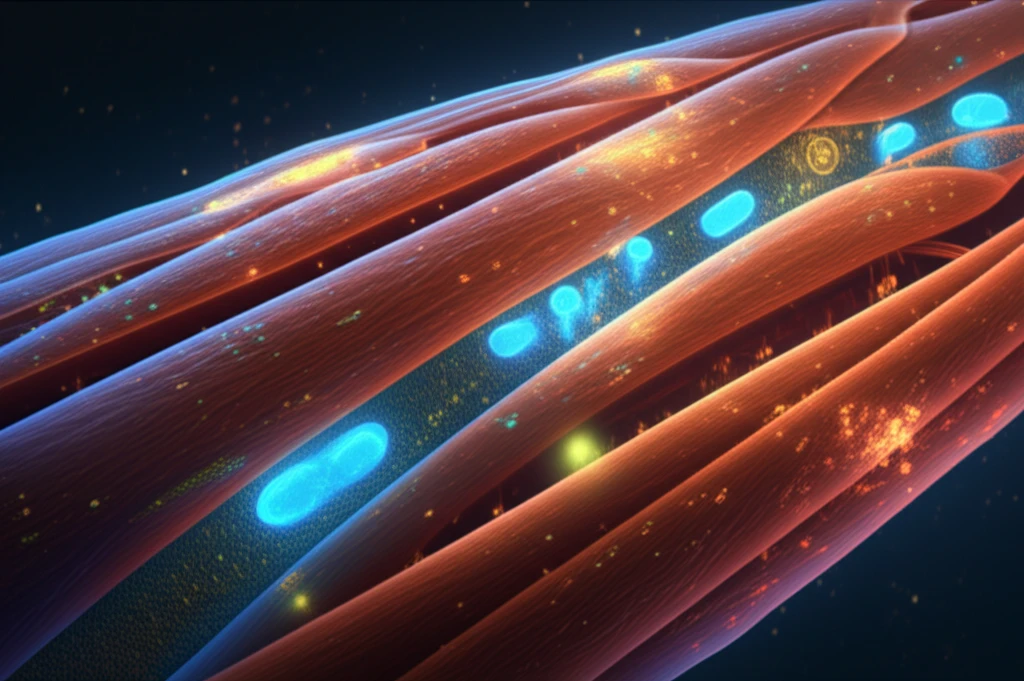
Skeletal Muscle Proteomics: Unlocking the Secrets to Strength, Health, and Longevity
"Explore how organelle proteomics is revolutionizing our understanding of muscle biology, offering new pathways to combat age-related muscle loss, enhance athletic performance, and treat muscular disorders."
Skeletal muscle, the engine of our bodies, is far more complex than we once thought. Its ability to adapt and change based on activity, diet, and even disease is truly remarkable. Modern science, particularly proteomics, is providing unprecedented insights into these processes. Proteomics, the large-scale study of proteins, allows us to see exactly what's happening inside muscle cells at a molecular level.
Imagine being able to pinpoint the precise proteins that change when you exercise, or identifying the molecular signals that trigger muscle loss as we age. That's the power of proteomics. By analyzing the proteins within different parts of muscle cells—called organelles—scientists are uncovering new targets for therapies, training regimens, and nutritional interventions.
This article explores how organelle proteomics, a specialized area focusing on individual cell components, is transforming our understanding of skeletal muscle. We'll discuss its implications for fighting muscle-wasting diseases, optimizing athletic performance, and promoting healthy aging. Get ready to discover how proteomics is unlocking the secrets to stronger, healthier, and longer-lasting muscles.
What is Organelle Proteomics and Why Does It Matter for Your Muscles?

Traditional methods of studying muscle often involve analyzing whole tissue samples. While this approach provides a broad overview, it can miss crucial details. Muscle cells are highly complex, containing various compartments (organelles) each with specialized functions and a unique set of proteins. When researchers examine an entire muscle tissue sample, the signals from abundant proteins can overshadow the more subtle, but equally important, changes in specific organelles.
- Increased Sensitivity: By reducing the complexity of the sample, scientists can detect even small changes in protein levels within specific organelles.
- Improved Accuracy: Focusing on individual compartments minimizes interference from other proteins, leading to more precise results.
- Targeted Insights: Organelle proteomics allows researchers to investigate specific muscle functions, such as energy production, calcium handling, and contraction.
- Discovery of New Targets: By identifying unique proteins within organelles, scientists can uncover new targets for therapies and interventions.
The Future of Muscle Health: Personalized Strategies Through Proteomics
As proteomics technology continues to advance, we can expect even more detailed insights into the complex world of skeletal muscle. Imagine a future where personalized training and nutrition plans are tailored to your unique muscle protein profile. Proteomics is paving the way for this level of precision, offering the potential to optimize muscle health and performance for individuals of all ages and abilities. From preventing age-related muscle loss to enhancing athletic potential, the future of muscle health is bright, thanks to the power of proteomics.
